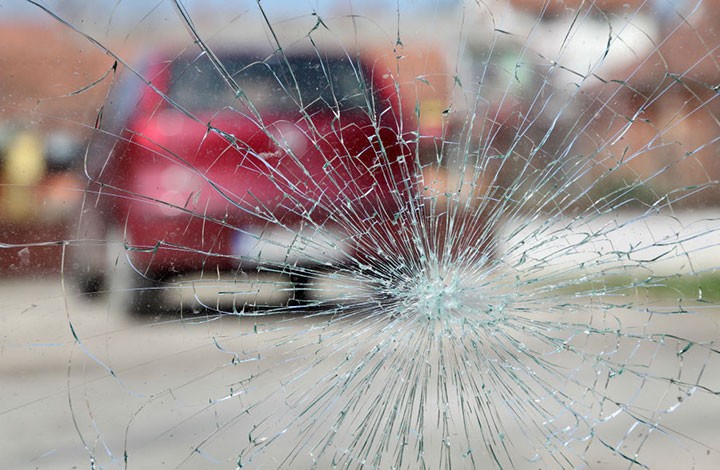Cyprus Car hire is one of the easiest ways to discover a destination, yet getting the correct car hire insurance regularly throws up all kinds of unnecessary issues and problems. We often hear from holidaymakers who have bought insurance they didn’t need because of pushy desk staff, or didn’t take insurance at all because they didn’t think they needed it. Sometimes, it is just a case of misunderstanding – unfortunately though, misunderstandings can be costly when it comes to car hire. The short version? Always check the small print. To help you do this, however, here we explain some of the key insurance terms you might come across when hiring a car and what you need to do to protect yourself.

What Your Car Hire Company Provides
All car rental companies should provide you with basic insurance – usually called CDW. This typically covers damage and Third Party Liability Insurance. CDW is short for Collision Damage Waiver. This offers varying levels of cover in the event of a collision or damage to the car-effectively it means that it covers you for damage to certain parts of the car but always check what is covered by the policy you are offered.
We say certain parts because often things such as the windscreen, the tyres and the undercarriage are not covered. CDW is generally included as a part of the rental in Europe, Africa and Australasia, but usually not in the US or Canada. Again, always check the small print before you drive away. The CDW will cover the total market value of a vehicle, but you will almost certainly be expected to pay the first part of the cost, or the “excess”, although it’s possible to avoid this – more about that below. Third Party Liability Insurance –covers you in case you cause damage to someone else. You can usually find what a rental company covers you for on their website – if it’s not easy to find, contact their customer care team and ask. So what’s the problem? Surely if you are already insured by the rental company there’s nothing to worry about? Well, not exactly. You are covered to a degree, but you are still liable to pay for damage to parts of the vehicle that aren’t covered, and the excess.
Insuring Other Parts Of The Vehicle
Remember when we told you most CDW policies don’t cover the vulnerable parts of the car, such as the windscreen, the undercarriage and the wheels? If you’re in a car accident, these areas are very likely to get damaged, so you will have to pay the excess cost. To get around this, you may wish to consider a car hire excess policy that covers these areas of the car as well. For example, if you’re in an accident and the windscreen gets damaged, you would pay the excess to the car hire company and then claim it back from your insurer. As always, check the small print of your policy before you drive away.

Car Hire Excess Insurance
If you have an accident or damage your car hire vehicle, you will still pay the excess cost (this can be anything between
€100 to €2,000, depending on the company you book with). Car hire excess insurance waives this fee so that you aren’t left out of pocket – you’re essentially paying a small fee to avoid a potentially huge fee. Given that car rental companies are renowned for excessive mark-ups on even the slightest scratch, car hire excess insurance can save you a packet should you (or someone else) damage the vehicle. The way it works is that you pay the first part of the claim when you return the car and then reclaim the money through your insurer later. Standalone third-party policies (a one off you would buy from a specialist insurer) are available from as little as €3.49 per day if booked in advance, whereas desk prices can be upwards of €17 per day. At some companies, desk staff can earn commission on the insurance they sell – unfortunately, this can lead to fear and hard sell tactics. The main thing to remember is that no matter what the rental agent may tell you, if you have already purchased a standalone car hire excess policy, you are fully covered.
One issue to look out for, however, occurs when you try to pay for your deposit by debit card, rather than credit card. The reason car hire companies want a credit card deposit is so that your money is available to them to cover any damage not covered by the firm’s CDW insurance. If you attempt to pay by debit card (some rental companies will flat out refuse this). If you want to avoid issues, always pay by credit card if possible.
What Happens In The Event Of An Accident?
How you deal with an accident can have an effect on your insurance. For example, if your rental car is damaged, it’s best to report it to the car hire company as soon as you can and ask the police to provide you with a written incident report at the time of the accident.

Road-Side Cover
No one wants to spend any part of their holiday stranded at the side of the road – especially in a country where you may not speak the language – but breakdowns do happen. Unfortunately, you cannot assume that you are covered for breakdowns, as providers can have very different policies on this: some will include cover in the rental price. Check what the breakdown policy is, before you travel. If you book directly through a provider, you can find out from them directly. Once again, it’s simply a case of checking beforehand so that you aren’t left in a difficult situation while on holiday.



